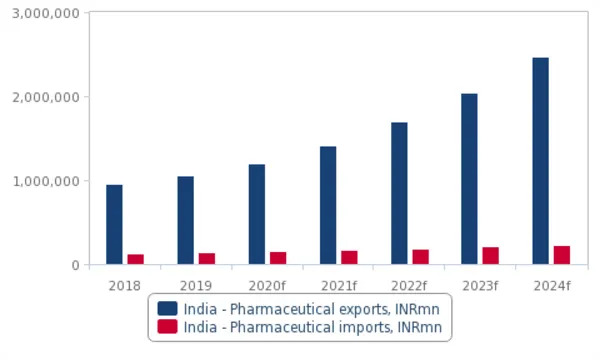
India slated to lead in pharma exports: analyst
Forecast shows India’s pharmaceutical export value will rise to US$30.8b by 2024.
India will pursue being a key exporter of pharmaceutical products due to its large and highly developed generic drug industry, a report from Fitch Solutions Country Risk & Industry Research revealed. The positive outlook for India’s domestic pharmaceutical industry is increasing its scope for international export opportunities.
Due to lockdown, India’s pharmaceutical sector got affected with exports falling to US$20.58b during the 2019-20 fiscal year, lower than the US$22b target. Exports climbed 1% in April, recovering from a 23% slump in March caused by global supply chain disruption. This is expected to grow further in May. Compared to exports in April 2019, exports saw a 0.25% growth in April 2020. Drug formulations and biologicals have shown 9.5% growth in FY 2020. However, the export of bulk drugs and drug intermediates dipped 0.73%, affecting the overall export performance.
Nonetheless, the Indian government has aggressively started implementing a policy to increase local output. They have announced a US$1.8b fund for setting up three drug manufacturing hubs. The government has also identified 53 key starting materials and active pharmaceutical ingredients like paracetamol, penicillin, and ciprofloxacin, whose output will be boosted on priority.
The Indian government has also decided to provide adequate logistics and timely clearances to easily set up the plants. Decisions have also been made to give formulations produced with indigenous APIs preference in government procurement.
The motive of this policy is to emerge as an alternative source of generic medicines to China.



















 Advertise
Advertise





